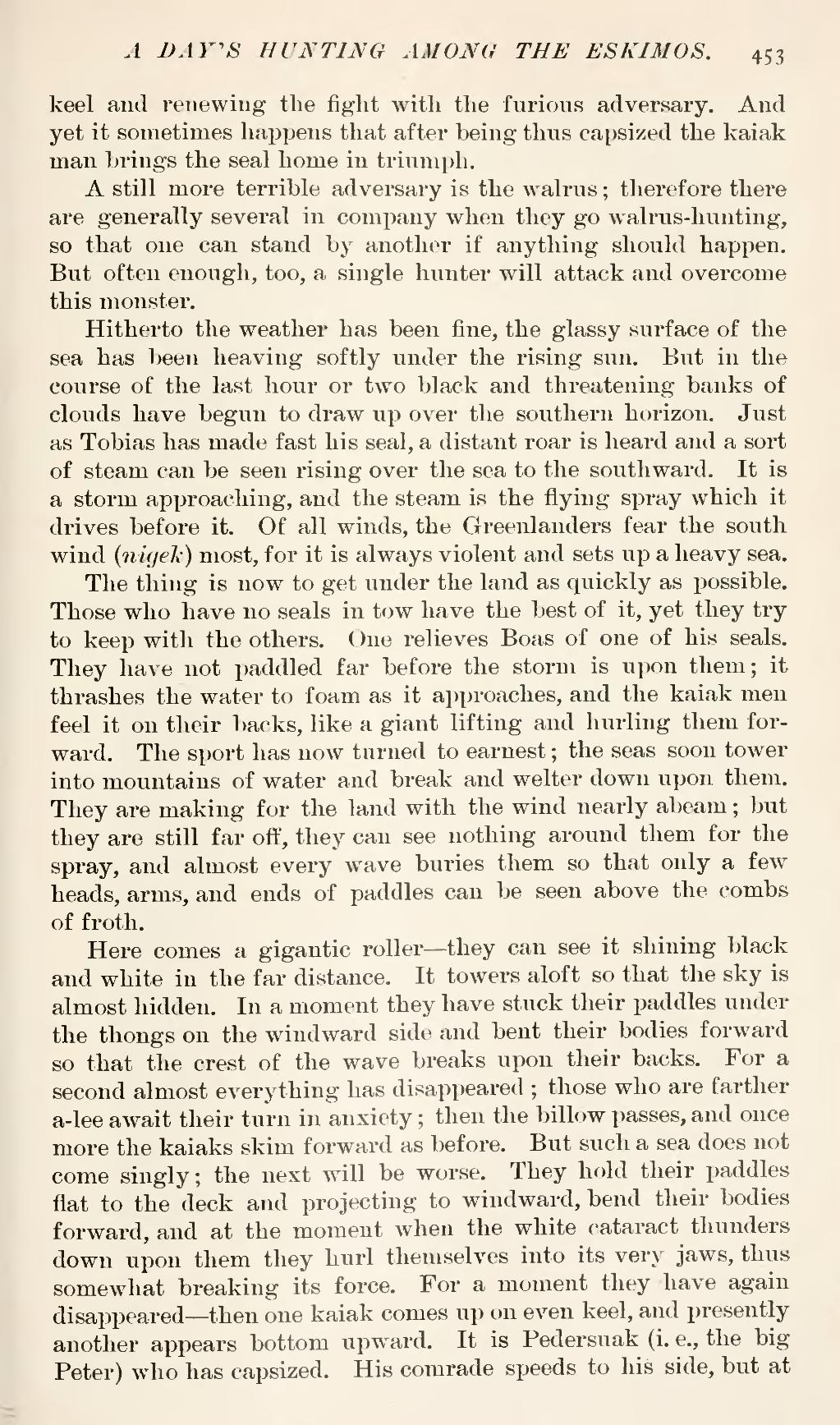keel and renewing the fight with the furious adversary. And yet it sometimes happens that after being thus capsized the kaiak man brings the seal home in triumph.
A still more terrible adversary is the walrus; therefore there are generally several in company when they go walrus-hunting, so that one can stand by another if anything should happen. But often enough, too, a single hunter will attack and overcome this monster.
Hitherto the weather has been fine, the glassy surface of the sea has been heaving softly under the rising sun. But in the course of the last hour or two black and threatening banks of clouds have begun to draw up over the southern horizon. Just as Tobias has made fast his seal, a distant roar is heard and a sort of steam can be seen rising over the sea to the southward. It is a storm approaching, and the steam is the flying spray which it drives before it. Of all winds, the Greenlanders fear the south wind (nigek) most, for it is always violent and sets up a heavy sea.
The thing is now to get under the land as quickly as possible. Those who have no seals in tow have the best of it, yet they try to keep with the others. One relieves Boas of one of his seals. They have not paddled far before the storm is upon them; it thrashes the water to foam as it approaches, and the kaiak men feel it on their backs, like a giant lifting and hurling them forward. The sport has now turned to earnest; the seas soon tower into mountains of water and break and welter down upon them. They are making for the land with the wind nearly abeam; but they are still far off, they can see nothing around them for the spray, and almost every wave buries them so that only a few heads, arms, and ends of paddles can be seen above the combs of froth.
Here comes a gigantic roller—they can see it shining black and white in the far distance. It towers aloft so that the sky is almost hidden. In a moment they have stuck their paddles under the thongs on the windward side and bent their bodies forward so that the crest of the wave breaks upon their backs. For a second almost everything has disappeared; those who are farther a-lee await their turn in anxiety; then the billow passes, and once more the kaiaks skim forward as before. But such a sea does not come singly; the next will be worse. They hold their paddles flat to the deck and projecting to windward, bend their bodies forward, and at the moment when the white cataract thunders down upon them they hurl themselves into its very jaws, thus somewhat breaking its force. For a moment they have again disappeared—then one kaiak comes up on even keel, and presently another appears bottom upward. It is Pedersuak (i. e., the big Peter) who has capsized. His comrade speeds to his side, but at

